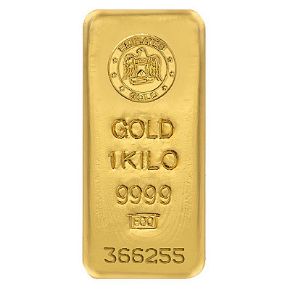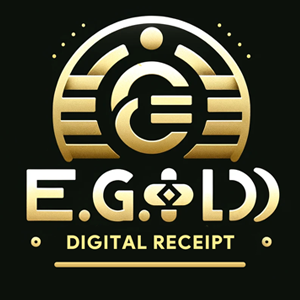
In recent years, cryptocurrencies have garnered significant attention as a new form of digital wealth. Initially hailed for their potential to revolutionize finance, cryptocurrencies like Bitcoin, Ethereum, and others have raised important questions about their long-term viability, especially when it comes to taxation and exchange issues.
For investors, the challenges presented by cryptocurrencies—such as volatility, regulatory concerns, high taxes, and technical difficulties in converting digital currencies into fiat money—have made many look for more stable, tangible assets to preserve wealth. One of the most traditional and trusted forms of wealth protection has been gold. By converting crypto holdings into gold bars, individuals may not only protect their assets from the uncertainty of the crypto market but also shield themselves from high taxes and exchange issues.
In this article, we will explore how converting crypto to gold bars can provide protection from high taxes, currency devaluation, exchange problems, and other challenges faced by crypto investors. This move blends the advantages of both digital and traditional assets and could potentially be the key to long-term financial security.
The State of Cryptocurrency: A Growing Market with Uncertainty
Cryptocurrency is seen by many as the future of finance. It offers decentralized control, fast cross-border transactions, and the potential for significant returns. However, despite these advantages, the crypto market is still fraught with challenges that could put investors at risk. High volatility is one of the most commonly cited risks, as cryptocurrencies can experience sharp price fluctuations within short time frames.
Additionally, the legal and regulatory environment surrounding cryptocurrencies is still developing. Governments across the world are grappling with how to classify, tax, and regulate crypto assets. While some countries have embraced crypto and blockchain technology, others have imposed heavy restrictions, making the trading and exchange of cryptocurrencies more complex and risky.
The primary concerns for crypto investors revolve around:
High taxes on crypto holdings: Many governments impose high capital gains taxes on profits from crypto investments, which can substantially eat into any gains made from trading.
Exchange rate fluctuations: The value of cryptocurrencies can fluctuate wildly, meaning that converting crypto into fiat currency at a favorable rate is often not guaranteed.
Regulatory risks: Changes in government regulations can impact the value of cryptocurrencies or even make it illegal to trade or use them in certain jurisdictions.
Lack of stability: Unlike traditional fiat currencies or tangible assets like gold, the value of cryptocurrencies can be highly speculative, which makes them difficult to rely on for long-term financial security.
This is where the idea of converting crypto to gold comes into play as a protective strategy.
Gold: The Ultimate Store of Value
Gold has been used as a store of value for thousands of years. Unlike fiat currencies, which are subject to inflation and government control, gold is a tangible asset that maintains its value over time. Historically, during periods of economic instability or high inflation, investors have turned to gold as a way to preserve their wealth.
The advantages of gold include:
Stability and Longevity: Gold has shown an ability to hold its value over the long term, making it a reliable hedge against inflation and economic uncertainty.
Universal Acceptance: Unlike cryptocurrencies, which are only accepted by certain parties and in certain jurisdictions, gold is recognized as valuable across the globe.
Liquidity: Gold can be easily traded and converted into cash in most parts of the world.
Hedge Against Currency Devaluation: When fiat currencies lose value due to inflation or government policies, gold typically maintains its purchasing power, making it an effective safeguard against currency devaluation.
Converting crypto to gold allows investors to switch from a highly volatile, digital asset to a stable, physical asset that has stood the test of time.
Converting Crypto to Gold Bars: A Smart Financial Strategy
By converting their crypto holdings into gold bars, investors can shield themselves from a number of risks related to high taxes, exchange issues, and other uncertainties associated with cryptocurrencies.
Let’s break down how converting crypto into gold can provide protection from these issues:
1. Protection from High Taxes
One of the most significant challenges that crypto investors face is the tax treatment of cryptocurrencies. In many jurisdictions, cryptocurrencies are treated as taxable assets, meaning that any capital gains made from trading or selling crypto are subject to taxation. This can result in a significant tax burden, especially for investors who have seen substantial gains.
The tax treatment of cryptocurrencies varies depending on the country, but common tax issues include:
Capital Gains Tax: When you sell or exchange your crypto for fiat currency (such as USD, EUR, or GBP), the government may tax your profit as a capital gain. In some countries, this can be as high as 20% or more of your profits.
Income Tax: If you are earning income through crypto (such as through mining or staking), that income may be subject to standard income tax rates.
Transaction Fees: In some cases, converting crypto into fiat or other assets may incur fees, which can further reduce the overall value of your holdings.
By converting crypto into gold, investors may be able to minimize the tax implications. Here's how:
Deferred Taxation: In many cases, the physical gold that you hold is not taxed until you sell it. This means that you can hold onto your gold for a long period before incurring any capital gains taxes. This deferred taxation gives you the ability to wait for the best time to sell your gold and potentially lower your overall tax liability.
Tax-Advantaged Accounts: Some countries offer tax-advantaged accounts for precious metals, such as IRAs in the U.S., where gold and other precious metals can be stored without incurring taxes until distribution. By holding your gold in such an account, you may reduce your immediate tax obligations.
Avoiding Crypto-Specific Taxes: Converting crypto directly into gold avoids the complexities associated with crypto-specific taxation. Gold, being a well-established asset, typically avoids the same level of scrutiny and regulation that cryptocurrencies face.
2. Avoiding Exchange Issues
Exchanging crypto for fiat currency or other cryptocurrencies can be cumbersome and expensive. Here are some of the common problems faced by crypto traders when trying to exchange their digital assets:
High Transaction Fees: Many cryptocurrency exchanges charge high fees for converting crypto into fiat currency, which can quickly erode profits.
Regulatory Hurdles: Some exchanges face regulatory scrutiny, and in certain countries, users are required to comply with stringent Know Your Customer (KYC) and Anti-Money Laundering (AML) regulations. These requirements can delay or even block withdrawals of crypto to fiat.
Exchange Failures: The crypto industry is still relatively young, and some exchanges have experienced failures, hacks, or security breaches, leading to the loss of funds or the inability to access crypto holdings.
Gold bars, on the other hand, can be stored and held privately, offering a high level of security and convenience for investors. When you own physical gold, you are not dependent on third-party exchanges, banks, or other intermediaries to access or trade your asset. You have direct control over your wealth, free from the risks associated with digital exchanges.
Furthermore, unlike crypto exchanges that can be shut down or face liquidity problems, the market for gold is well-established and stable. Gold can be easily converted into cash at any time, without the need for complex exchanges or market intermediaries.
3. Gold’s Protection Against Inflation and Currency Devaluation
Another reason investors are increasingly looking to convert crypto into gold is to protect against inflation and the devaluation of fiat currencies. Cryptocurrencies have been marketed as an inflation hedge due to their decentralized nature and fixed supply models (e.g., Bitcoin's 21 million limit). However, the volatility of the crypto market means that their ability to maintain value in times of inflation or economic crisis is uncertain.
Gold, on the other hand, has consistently served as a hedge against inflation for centuries. When inflation increases, the value of fiat currencies generally decreases, but gold tends to maintain or even increase its value. This makes it a reliable way to preserve wealth during periods of economic turmoil.
By converting crypto into gold bars, investors can ensure that their wealth retains its value regardless of inflationary pressures or currency devaluation. In countries with high inflation rates or unstable currencies, this strategy becomes even more critical. Gold’s ability to store value in the long term makes it a reliable safeguard against the devaluation of digital and fiat currencies alike.
4. A Tangible Asset for Asset Diversification
Many crypto investors are aware of the risks of concentrating their wealth in a single asset class. Cryptocurrencies, as volatile as they are, represent a new and emerging asset class, and relying solely on them can be risky. A diversified portfolio is one of the fundamental principles of sound financial planning.
Gold bars offer an excellent way to diversify an investment portfolio. As a tangible asset with a long history of stability, gold can balance out the risks associated with the crypto market. By diversifying into gold, investors can reduce their exposure to crypto market fluctuations and create a more stable financial foundation.
While cryptocurrencies present exciting opportunities for investors, they come with a host of challenges, including high taxes, exchange issues, and volatile market behavior. Converting crypto holdings into gold bars offers a way to mitigate these risks and protect wealth in a stable and reliable asset. Gold's history as a store of value, its liquidity, and its ability to hedge against inflation and currency devaluation make it a powerful tool for securing long-term financial success.
Whether you’re looking to shield your wealth from high taxes, avoid the hassles of crypto exchanges, or protect against economic uncertainty, converting crypto to gold bars is a strategy that could offer both security and peace of mind. With the right approach, this conversion can allow you to preserve and grow your wealth, while ensuring that you are protected from the uncertainties of the modern financial landscape.
NOTE
This Content is the copyrighted content of EE.GOLD. All rights are reserved. You are welcome to share or use our content only by including direct links to our website. Any other form of reproduction, distribution, or use without proper attribution is strictly prohibited.
This Content is intended solely for educational purposes. The information provided does not constitute financial or investment advice.
Please note that Digital Storage Receipt, Secure Storage Solutions, and Physical Gold Sales are the only services offered by EE.GOLD.
We strictly adhere to government regulations and are firmly against all illegal financial or investment activities globally.
For further inquiries, feel free to contact us through our official channels.










.png)

